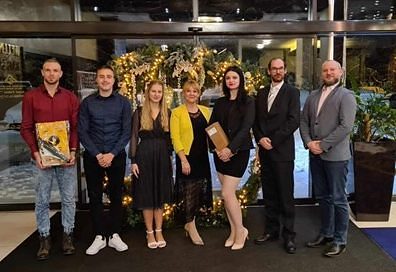
The recently concluded Air Protection 2023 conference had record attendance with more than 220 participants present and more than 30 online participants, resulting in a record number of registered contributions at the conference. Therefore, some presentations had to be moved to the poster section. A novelty was a panel discussion with representatives from the Ministries of Environment of Slovakia and the Czech Republic, enabling a direct comparison and confrontation of individual disputed legislative points in the field of air protection. The discussion was extremely constructive and focused on areas such as the regulation of small sources, control of heating devices, and the possibility of enforcing corrections in the heating of households.
Another innovation was the presentation of posters in the form of a flash presentation by one of the authors and an invitation for discussion at the poster. This format is common at international conferences and is intended to intensify discussion and increase interest in presentations in this format. The poster from our department, which describes the achieved goals in the area of transitioning to the new regime of reporting emissions in agriculture, fugitive emissions of methane, and in wastewater, can be viewed here.
The contributions were focusing on several current topics in the field of air quality and protection. New legal regulation in the field of air quality was introduced and included in the panel discussion. The conference continued with presentations on climate change, the emissions trading system, and carbon neutrality. Also, possibilities for supporting a gradual transformation and decarbonization of the industry were presented. The potential of cities in the area of CO2 emissions reduction using low-carbon strategies was evaluated. Industrial emissions were also discussed, along with the introduction of the installation of a new electric arc furnace at U.S. Steel Košice, which should result in emissions reduction and an increase in the company's energy efficiency.
Our presentation on the evaluation of the results of a statistical survey in households, supported by the LIFE IP project – "Improving air quality," can be found here.

